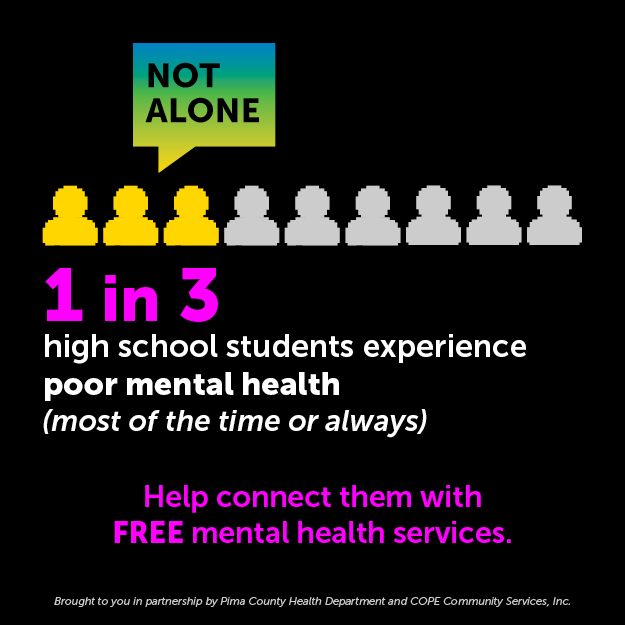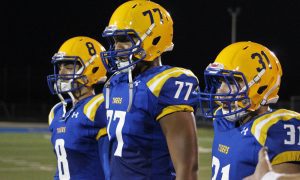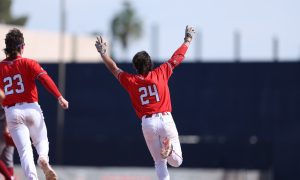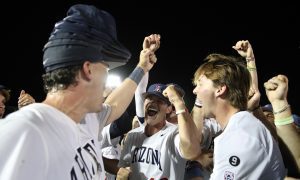The Pac-12 had no other choice but to postpone the upcoming regular season of its college football season.
There was no other sensible choice – even if it was to delay a decision for another month or month and a half it would have come to the same conclusion.
It was – at the end of the day – all about the health, wellness and safety of the student athletes … even if the student-athletes don’t agree with it.
Yes, millions of dollars will be lost, all over the conference and in key college towns, but it had to be done.
“It’s a decision that will have “tremendous human impact,” said Michael Schill, chair of the Pac-12 CEO Group and president of the University of Oregon on a conference call Tuesday afternoon.
He added the league wanted to delay the decision until now so “as to give it the best shot (to make it happen).”
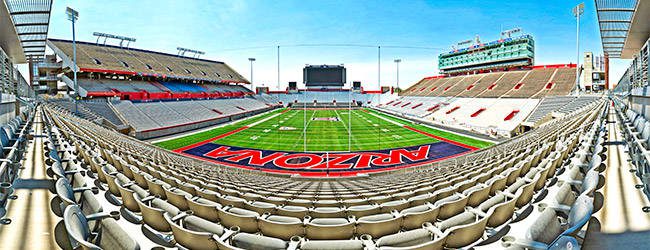
But on Tuesday afternoon, it was the Pac-12 CEO Group that unanimously voted to postpone all sports competitions until the beginning of the new year.
The Pac-12 said if conditions related to the coronavirus improve, it would consider a return to competition after Jan. 1.
About 90 minutes after its announcement, Arizona athletic director Dave Heeke said: “Arizona Athletics supports the Pac-12 Conference’s decision to postpone all sport competitions through the end of the 2020 calendar year with considerations to resume competition in 2021 if conditions improve.”
“This decision was made after consultation with athletics directors and with the Pac-12 COVID-19 Medical Advisory Committee who expressed concern with moving forward with contact practice,” Heeke added. “Health and safety have been the shared guiding principles of the University of Arizona and our athletics department throughout the re-entry process, and I want to thank President Robbins and University administration for their unwavering leadership during these unprecedented times.”
Heeked mentioned that in alignment with Arizona’s plans to welcome students and staff back to campus, it will continue its ongoing re-entry processes, medical screenings and athletic activities.
“This is an incredibly difficult outcome for the entire Wildcat Family of student-athletes, coaches, staff, alumni and supporters,” he said. “I have a great deal of empathy for these student-athletes and the impact this will have on them personally.
“Representing our University, community and state in competition is the foundation of the mission of Arizona Athletics and the Wildcat Way. However, the endless hard work of our student-athletes, coaches and staff in preparation for Fall seasons is something we can all be proud of. The work of everyone who represents the Wildcat Way over the last five months has been an outstanding display of unity and resiliency.”
Bear Down! pic.twitter.com/WINfS5EzyG
— Kevin Sumlin (@CoachSumlin) August 11, 2020
Another casualty is Tucson’s beloved Arizona men’s and women’s basketball programs.
See you in January – it’s going to be a crowded athletic field on weekends … if, of course, it eventually gets to that point.
“We will continue to assess (the situation) and hopefully we will be playing in the spring,” Schill said.
Clip and save that quote (by the way).
Pac-12 commissioner Larry Scott said postponing fall sports “was an extremely difficult and painful decision” that will have an impact on so many levels.
“The health, safety and well-being of our student-athletes and all those connected to Pac-12 sports has been our number one priority since the start of this current crisis,” Scott in a prepared statement. “Our student-athletes, fans, staff and all those who love college sports would like to have seen the season played this calendar year as originally planned, and we know how disappointing this is.”
Student-athletes will be able to maintain their scholarships and will continue to have all the benefits (academic advising, tutoring and support services) available to them. It will be up to the NCAA if they are granted an extra year of eligibility, although there seems to be hope given spring sports (softball, baseball, etc.) were given an extra year when all this broke in March.
The doctors also expressed concern about proximity that comes with full-contact practice. “It’s all in the presidents’ hands,” said a source. 2/2
— Pete Thamel (@PeteThamel) August 11, 2020
What made the decision so apparent is that there “are too many questions, too much uncertainty right now that we would feel uncomfortable for any contact sports,” said Schill. “We will be constantly reassessing the data. We are science based. We are academics. We are going to be looking at facts, not just opinions and that’s something we are deeply committed to.”
This decision is about making sure the student-athletes are and will be healthy today, tomorrow and beyond. And, well, there aren’t enough answers right now.
So, there will be no sports on college campuses throughout the west, specifically in the Pac-12.
“It’s about responsibility and not liability,” said ASU athletic director Ray Anderson. “It’s about accountability to these student athletes and their families, short and long-term … The science and the medicine say we cannot allow you to go forward right now so we won’t.
“We don’t have to play until it’s safe (or) until we can literally, we can guarantee the health and safety of our student-athletes. Not just now but moving forward. We don’t know the impact going forward and until we have (that) we’re not going to go forward.”
It was the right thing to do.


